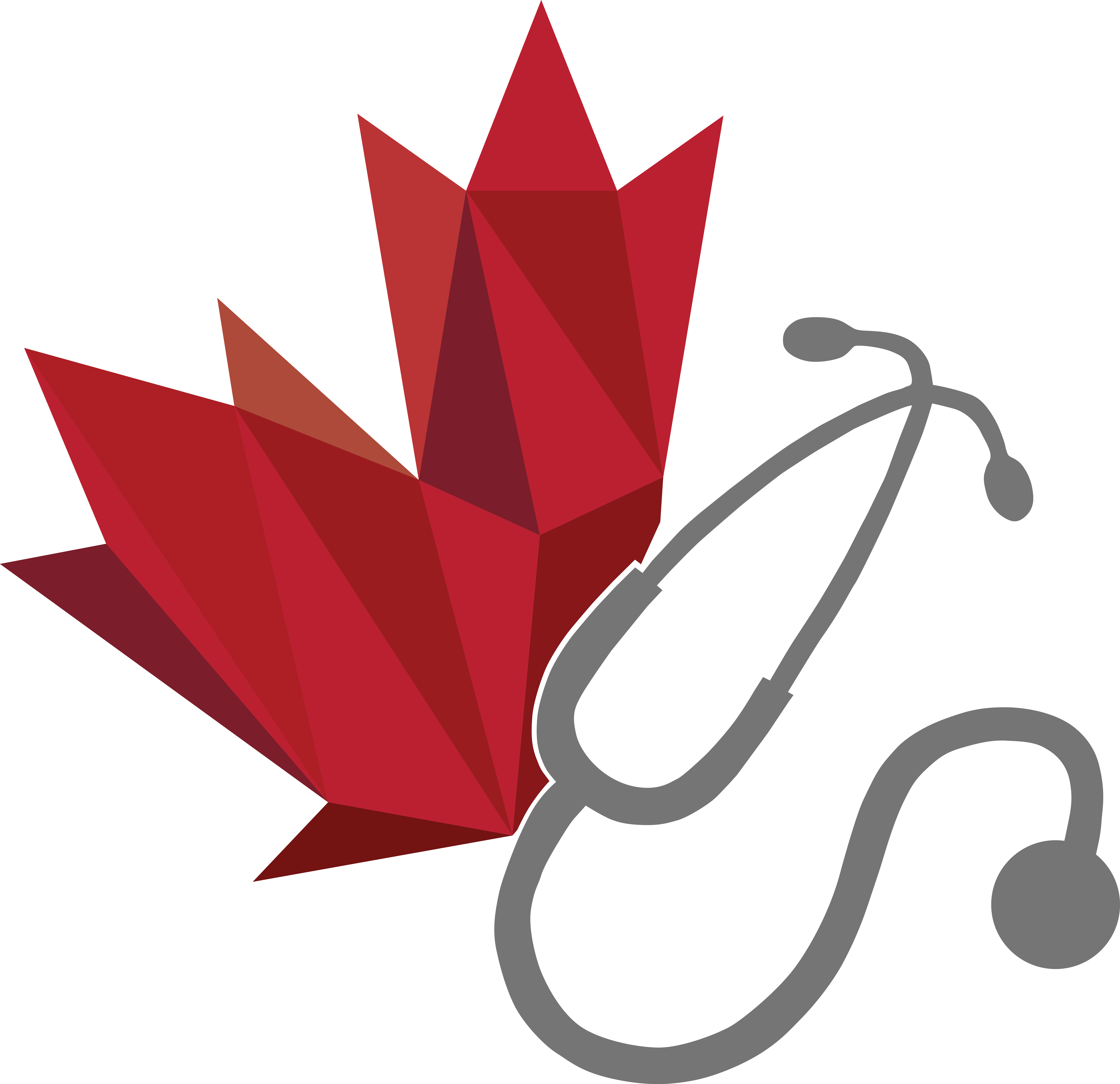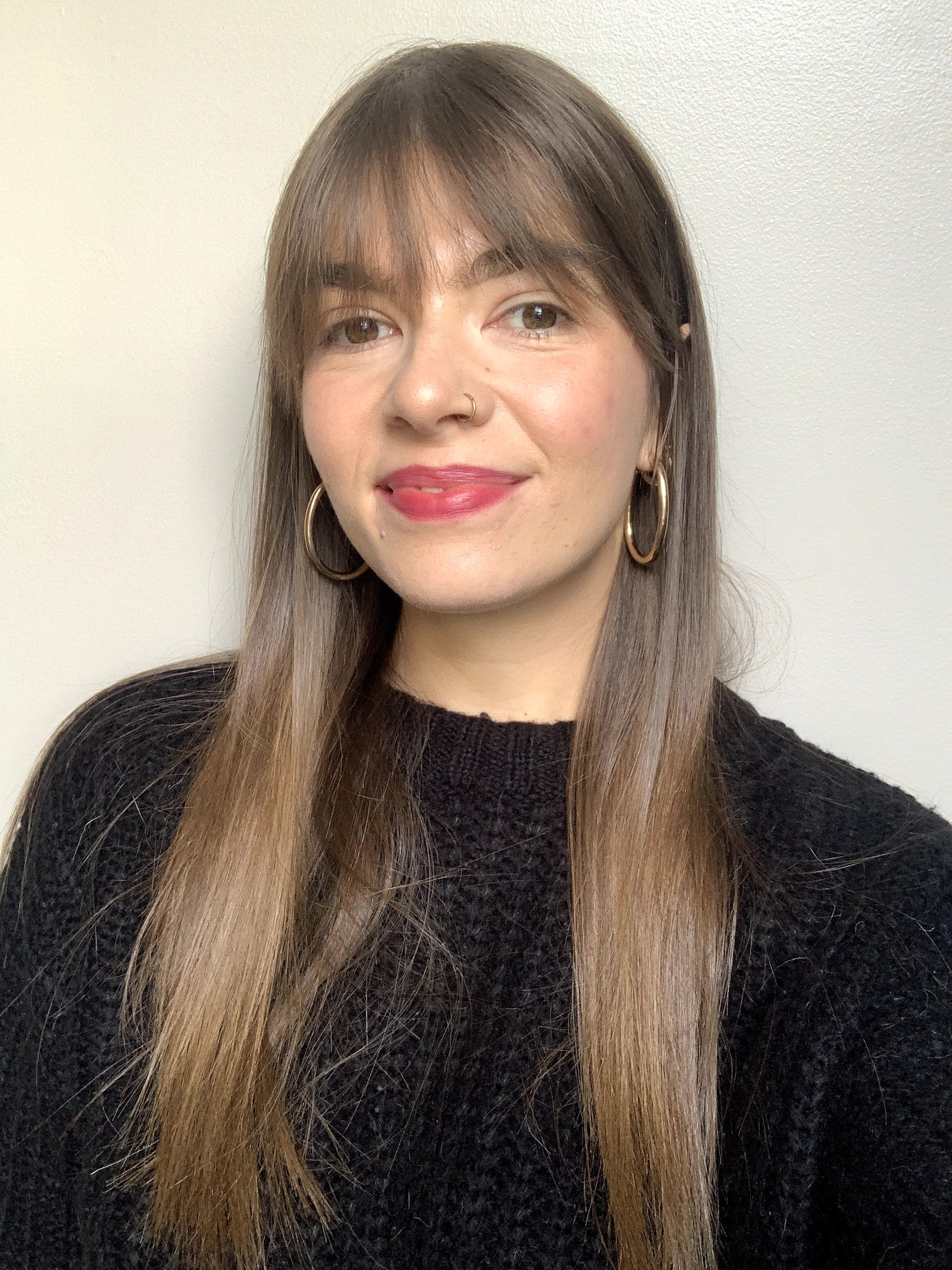Research Highlights
The CFMS is launching its new research highlights campaign! We seek to elucidate the work that our peers perform across the country to connect like-minded individuals, inspire students around the country, and directly demonstrate the importance of research performed by health care professionals. Throughout the year, we will be focusing on various fields of research pertinent to the field of medicine.
If you would like to submit your research for highlighting, please use the linked form.
-
CaSMIP (Cancer and Severe Mental Illness Project)
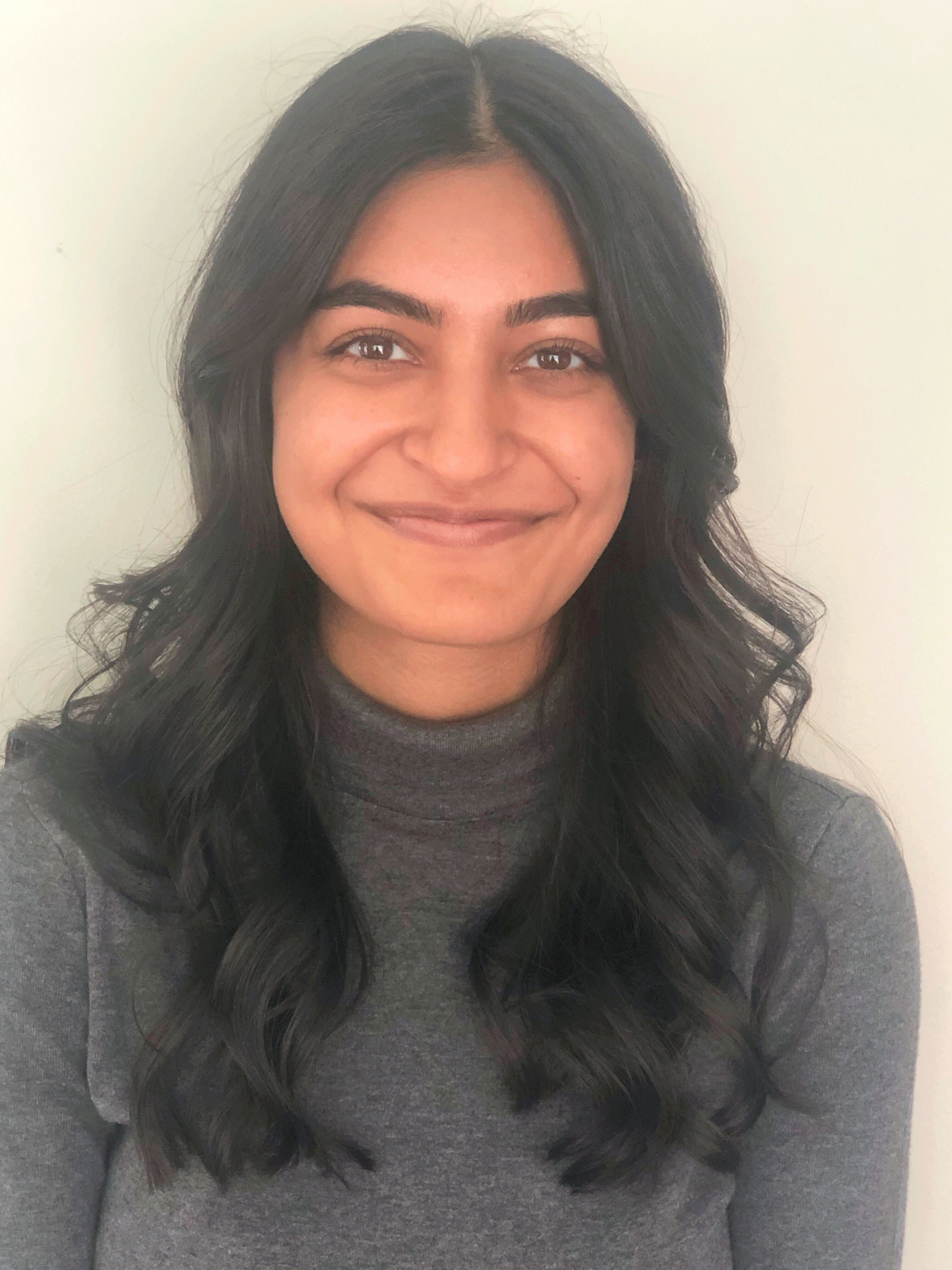
Student Researcher: Jenna Nensi
School: Queen's University
Year of Study: SecondPlease describe your research project in up to 5 bullet points
- Cancer contributes to the higher rates of morbidity and mortality in mental illness. I am a team lead in studying the care pathways to oncology screening, treatment and follow up of common cancers among persons with mental illness as well as factors that may hinder early detection, interventions and ultimately the trajectory of both illnesses.
- The nature, severity, and course of mental illness can also have a significant effect on cancer care pathways, including screening, early detection, treatment, follow-up, and prognosis. When these are combined with individual social barriers, stigma, and diverse life experiences, poorer health outcomes can result.
- Current literature has not identified a cause for this disparity in Kingston, Ontario, and our study aims to close this gap by identifying specific Severe Mental Illness (SMI) and Equity Diversity Inclusion (EDI) barriers that affect screening, early diagnosis, and treatment of common cancers including lung, breast, cervical, and colorectal cancers.
- Our findings have identified specific barriers and limitations of current cancer care guidelines and practices that may contribute to the increased cancer mortality seen in individuals with SMI.
Why did you choose your field of research/specific research project?
I chose to be involved in CaSMIP to help identify and overcome specific Severe Mental Illness (SMI) and EDI barriers which affect screening, early diagnosis and treatment of each of the cancers. In addition, CaSMIP helps to facilitate intersectoral and interprofessional collaboration involving, primary care, mental health services and oncology carepathways for individuals with an SMI and their families or caregivers. By being involved in this specific research project, I have had the opportunity to listen to lived experience of participants and caregivers to help understand the importance of intersectoral work in improving health outcomes. I hope to use the knowledge and skills I have acquired throughout this project in my future practice.
What are the implications of your research for clinical practice?
As CaSMIP aims to identify and overcome specific SMI and EDI barriers which affect screening, early diagnosis and treatment of each of the cancers, the implications for clinical practice include raising community awareness and improve the care and quality of life associated with cancer care in individuals with mental illness.
What activities do you do outside of research and medicine?
Outside of research and medicine I enjoy hiking along the Bruce Trail and playing with my cats. A goal of mine is to hike the entire Bruce Trail!
How do you see research playing a role in your future career?
Research will absolutely play a role in my future career in medicine. I hope to be able to use my research to help patient population that I serve in the future and help address the needs that are brought to my attention. Research has helped develop my critical thinking, problem solving, communication, collaboration, and independence and I hope to continue working on these skills.
-
Retrospective Analysis of the Safety of FOLFOX Compared to CAPOX for Adjuvant Treatment of Stage III Colorectal Cancer in Newfoundland Patients

Student Researcher: Joshua McShane
School: Memorial University of NewfoundlandWhat is your research about?
Colorectal cancer (CRC) is the third most commonly diagnosed cancer in Canada and every year more than 9,600 Canadians die from the disease. Capecitabine and oxaliplatin (CAPOX) and infusional 5-fluouracil, folinic acid, and oxaliplatin (FOLFOX) are the two chemotherapy regimens in current clinical use for the adjuvant treatment of Stage III CRC. Phase III clinical trials have demonstrated that FOLFOX and CAPOX have equivalence for improving survival outcomes. However, the rates of patient toxicities secondary to each regimen have never been compared by a direct head-to-head clinical trial. This is important in Newfoundland because many peripheral centers lack the resources to support the home infusion program required for FOLFOX, leaving CAPOX as the sole treatment option. The goal of my study was to review if Newfoundland patients receiving CAPOX experience greater treatment-induced toxicities compared to FOLFOX-treated Stage III CRC patients. We performed a multicentre retrospective cohort study to compare rates and severities of chemotherapy induced toxicities, healthcare resource utilization secondary to chemotherapy, and treatment completion rates between Newfoundland Stage III CRC patients that had been treated with CAPOX compared to those that had received FOLFOX therapy.
Why did you choose your field of research/specific research project?
I have always been interested in oncology research. During my BSc I worked on several basic science projects in oncology and when I started medical school, I knew that I wanted to get involved with clinical research. Colorectal cancer has a huge global burden of disease, particularly in my home province of Newfoundland and Labrador where we have one of the highest rates of colorectal cancer in the country. This project has allowed me to pair my interest in oncology and clinical research with a project that has the potential to make an impact on healthcare in this province.
What are the implications of your research for clinical practice?
This project has several potential implications for clinical practice. Our study demonstrates that compared to Newfoundland CRC patients treated with FOLFOX, patients receiving CAPOX chemotherapy are more likely to experience toxicities of greater severity, require emergency services secondary to treatment-related toxicity, and to discontinue therapy. These findings translate to a reduced quality of life while receiving treatment and possibly contribute to reduced efficacy in recurrence prevention.
We plan to use the data from this study to advocate for universal access to FOLFOX for all stage III CRC patients in Newfoundland. This study will also provide clinicians with local data for guidance when discussing the options of 3 months CAPOX versus 6 months FOLFOX therapy in low-risk Stage III CRC. Finally, we hope that this study will raise awareness of the potential increased toxicities with CAPOX therapy and encourage other cancer care programs to compare the safety of FOLFOX and CAPOX within their populations.
What activities do you do outside of research and medicine?
I spend a lot of my spare time outdoors. I am an avid runner and swimmer and I am also a member of a local men’s league basketball team. I love spending time trying new restaurants and exploring new places with friends and family. On the weekend I enjoy attending my younger brothers high school basketball tournaments and other sporting events.
How do you see research playing a role in your future career?
As I move forward in my career, I hope that research will always remain an integral part of my clinical practice. Medicine is a dynamic field that is evolving at a rapid pace. I believe that continued involvement in research is one of the best ways to stay abreast to the continually evolving guidelines for best practices. As clinicians that interact with patients on a daily basis, I believe we are also presented with unique experiences that lend themselves well toward generating a large variety of important research questions. I hope to use my clinical experiences to guide projects aimed at improving the outcomes and quality of care provided to patients. Regardless of which field of medicine I decide to practice in, I hope to remain involved in scholarly projects as a way of continually advancing my knowledge and patient care.
-
Detecting prostate cancer with magnetic resonance imaging – ultrasound fusion targeted prostate biopsies in patients with previously negative biopsies.

Student Researcher: Thomas M. Southall
School: Memorial University of NewfoundlandWhat is your research about?
- Prostate cancer is the most commonly diagnosed cancer among Canadian men and is suspected when patients are found to have an abnormal digital rectal exam or elevated Prostate Specific Antigen (PSA) level. These patients often go on to have a transrectal ultrasound (TRUS) prostate biopsy. - Patients with negative TRUS prostate biopsies but continued prostate specific antigen (PSA) elevation are at risk of harboring clinically significant prostate cancer. Such patients commonly receive prostatic magnetic resonance imaging (MRI) to identify index lesions suspicious for clinically significant prostate cancer. - My project reports our experience with MRI – ultrasound (US) fusion biopsies in this cohort with previously negative TRUS biopsies. This prospective study focused on three objectives: (1) detection rates of clinically significant prostate cancer; (2) clinical outcomes of patients who had clinically significant prostate cancer identified with fusion biopsy; (3) predictors of clinically significant prostate cancer in patients with an elusive PSA and previously negative TRUS biopsy.
Why did you choose this project?
The clinical burden of prostate cancer is substantial. However, prostate cancer may range from indolent to aggressive forms of disease. Regardless, all diagnoses of prostate cancer may cause physiological distress among patients. I chose this project because it allowed me to report results of a cutting-edge detection method at a local level. When this project began, St. John’s, NL, was one of the first few sites in the country to use an MRI-US fusion prostate biopsy device. This project allows local urologists to see the difference the tool is making to detection rates and clinical outcomes and may lead to further projects in the future.
What are the implications of your research for clinical practice?
The results of this project indicate MRI-US fusion targeted biopsy yields high detection rates for clinically significant prostate cancer in men with previously negative TRUS biopsies and persistent elevated PSA. Furthermore, the large majority of patients who had clinically significant prostate cancer identified on MRI-US fusion biopsy went on to receive either a radical prostatectomy or radiation therapy, indicating a significant change in management. The hope is that proper utilization of this new device will allow for increased early detection of clinically significant prostate cancer with a decrease in detection of indolent prostate cancer. By doing so, urologists may be able to spare many patients unnecessary additional biopsies, the risks associated with such, and any psychological distress accompanying a diagnosis of prostate cancer.
What activities do you do outside of research and medicine?
In my spare time I like to explore local restaurants and coffee shops. I stay active through walks with my partner and our dog, recreational swimming, karate, and hiking. I also like to unwind with video games, puzzles, books, and movies.
How do you see research playing a role in your future career?
I think the rapidly evolving and dynamic nature of medicine challenges all clinicians to continuously learn and stay up to date with current research. Aside from staying well informed, I hope that throughout my career I am able to add some new knowledge to the field. There are many avenues to do this and as a fourth-year medical student unsure of where The Match will lead me, it is difficult to predict which avenue I will take. That being said, I am excited to discover where my career will take me next as there is no shortage of research questions to be asked.
-
Lipidomic analysis of calcific stenotic human aortic valves

Student Researcher: Negar Atefi
School: University of ManitobaWhat is your research about?
I am currently completing my BSc Med degree, working on a research project about lipidomic analysis of calcific stenotic human aortic valves. Aortic valve stenosis (AVS) is the most common valvular disease in the western world. Although there are multiple reasons for the development of AVS, calcification is the primary cause in North America and Europe. The diagnosis of severe AVS carries significant morbidity and mortality, and the only definite treatments for these patients are aortic valve replacement (AVR) or transcatheter aortic valve implantation (TAVI). Unfortunately, the pathological mechanism of calcific AVS is still unclear, and currently, no medical therapy to prevent or reduce the progression exists. Our lab is invested in studying the metabolomic profile of patients with AVS, and my project specifically focuses on the identification and quantitation of lipid molecules present in human stenotic aortic valves.
Why did you choose this project?
I chose this project first since I have always been interested in cardiology and cardiovascular diseases. In addition, given the burden of AVS and the current lack of medical treatment for it, the objectives of this project as well as its potential impact when translated into clinical practice were very effective in my decision. Lastly, coming from a biochemistry background, having the chance to get back to a basic science lab and perform experiments was something I looked forward to!
What are the implications of your research for clinical practice?
Given that currently there are no known mechanisms for the calcific AVS, being able to find the potential metabolic pathways involved in the disease progression can be very helpful in predicting which patients will progress to the severe stage of AVS. Another implication of finding key metabolic markers in AVS is their use as a potential therapeutic target for preventing the progression of this disease and therefore reducing the need for other invasive procedures such as AVR and TAVI.
What activities do you do outside of research and medicine?
Outside of research and school in general, I enjoy spending time with family and friends, painting, and hiking. I also enjoy listening to podcasts and reading books in my free time.
How do you see research playing a role in your future career?
I believe that doing research will provide you with insights and skills that are essential for your success as a future resident or physician, including keeping up with the latest findings and protocols in your field, being able to conduct and successfully publish clinical trials and cases, respectively. That being said, I hope that my research work today can help me become a successful clinician/scientist in the future.
-
A metabolic-epigenetic axis drives lethal infantile ependymoma
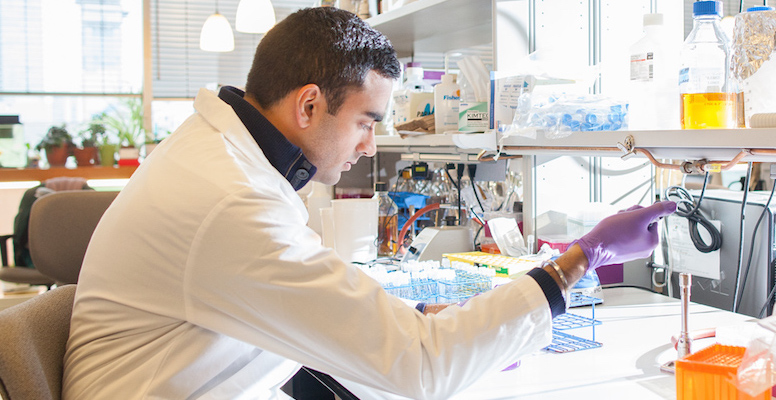
Student Researcher: Sachin Kumar
School: University of TorontoWhat is your research about?
● I work in the laboratory of Dr. Michael Taylor at the Hospital for Sick Children, where we study pediatric brain tumours
● Ependymoma is a type of brain tumour that occurs predominantly in children, and has poor prognosis and high morbidity for those who survive
● Unlike most cancers, posterior fossa A ependymoma (in the cerebellum, the most common and deadly) has no real driver mutations that define the disease, so it is difficult to model, study and identify therapies
● We investigated how oxygen levels and tumour metabolism are essential in the growth of these tumours, allowing us to create several in vitro cultures from patients
● By targeting the tumour metabolism, or the epigenetic changes that the metabolism regulates, we have uncovered what drives PFA ependymoma and identified possible targeted treatments for pre-clinical testingWhy did you choose this project?
I’ve been super fascinated with oncology research for a long time, and the way cancer cells hijack normal cellular processes, adapt to treatments, and evade the immune system has always been intriguing to me.
Pediatric brain tumours are in need of better treatments and there has been a lot of recent genomics advances applied to this field. For my PhD I really wanted to focus on cancer genomics and use cutting edge techniques like CRISPR and single-cell RNAseq to characterize a cancer and identify vulnerabilities.
Ependymomas occur in such young children (~2-3yo) and the treatment is limited to surgery and radiation, which in these infants is devastating. Understanding what drives these cancers so we can develop new targeted therapies is paramount, and I wanted to take on the challenge.What are the implications of your research for clinical practice?
Like most basic scientists, often times our research is confined to specific proteins or mutations or signaling pathways. I am thankful that my project always coupled our investigation with testing molecules or drugs to identify novel vulnerabilities. With the findings we recently published, we are hopeful to transition some candidate compounds to pre-clinical and then clinical trials and provide new options for oncologists who treat PFA ependymoma.
What activities do you do outside of research and medicine?
Outside of the MD/PhD, I enjoy getting outdoors and being active. I love cycling, and love to play and watch sports (#WeTheNorth). I also really like experimenting with foods and recipes, as well as new wines and craft beers. I also love to travel – and I hope to visit Machu Picchu and Japan in the near future!
How do you see research playing a role in your future career?
Entering the MD/PhD, I was fairly certain I wanted to be a clinician scientist. That resolve has only solidified throughout my training. It’s been such a privilege to be able to see patients in clinic, be in the operating room during surgeries, and work on those same tumours in the lab. I know what I’m doing has immediate purpose and impact, and that marriage between the problems faced in clinic and the questions we ask to try to solve them are a part of academic medicine I look forward to for decades to come!
-
Exploring the Intersections of Age and Sexuality: Concerns Among LGBTQ+ Older Adults in Newfoundland, Canada about Moving from Independent Living to Residential Care
Student Researcher: Rebecca Matthews
School: Memorial University of NewfoundlandWhat is your research about?
● LGBTQ+ older adults were born, raised, and aged during a time when discrimination due to sexual orientation was prevalent. A lifetime of discrimination based on sexual orientation can negatively influence LGBTQ+ seniors’ experience of the healthcare system, their interactions with health care professionals and their decision-making about transitioning into residential care.
● My narrative inquiry explored the concerns expressed by older LGBTQ+ people about transitioning from independent living in residential care facilities.
● An online focus group was conducted with LGBTQ+ people over the age of 55 and living in Newfoundland, Canada. Data were analyzed using thematic analysis.
● Findings demonstrate that LGBTQ+ older adults have concerns about the prevalence of heterosexual norms and assumptions, fear of discrimination, health professionals’ lack of education about queer family structure, and privacy.Why did you choose this project?
As a young queer person, I have past generations of LGBTQ+ people to thank for my freedom today. They have lived through the HIV crisis, participated in the Stonewall riots, and were at the forefront of the gay liberation movement. They dedicated their lives to fighting for the equality that I benefit from today. I feel like it is my duty to advocate for and protect LGBTQ+ older adults, as they have for me.
A few experiences converged showing me how to continue that advocacy work. I have a longstanding interest in the barriers that marginalized people face when accessing health care. I focused my attention on the LGBTQ+ community when completing my Master’s in Aging and Health at Queen’s University. During that time I reviewed a report on providing culturally competent care for LGBTQ+ seniors in residential care and assisted living created by QMUNITY, a queer resource centre in British Columbia. That work inspired me to explore the transition to residential care for seniors in Newfoundland where I was born and plan to practice.What are the implications of your research for clinical practice?
The findings of my research provide insight into the concerns that LGBTQ+ seniors have about moving into residential care. My findings, along with my critical review of previous studies conducted elsewhere, support recommendations regarding policy change and practice guidelines that can be used to create a safer and more inclusive environment for LGBTQ+ people in residential care.
What activities do you do outside of research and medicine?
I love the outdoors, and Newfoundland is a truly beautiful place to live. I love hiking the East Coast Trails, especially with my mom. I stop at every rocky beach along the way, usually dipping my feet in the ocean and filling my pockets with any unique rocks I find along the way. I also like to keep busy with “DIY” projects. One such project was building a wooden wedding arch for a friend who married this fall.
How do you see research playing a role in your future career?
I believe that conducting research is one of the many responsibilities of a physician. The Royal College of Physicians and Surgeons of Canada identifies “Scholar” as one of the CanMEDS roles, highlighting the importance of contributing to the creation and dissemination of health research. I plan to continue conducting research throughout my career, and provide mentorship for future medical learners.
-
Influence of musical background on surgical skills acquisition

Student Researcher: Lauren Burton
School: University of ManitobaWhat is your research about?
- This project was a team effort led by Dr. Ryan Sun, an R4 Urology resident at the University of Manitoba and was overseen by Dr. Darrel Drachenberg, a Urologist at the Health Science Center in Winnipeg, MB. The team included myself and fellow University of Manitoba medical students Yushi Wang (’21), Andrew Fast (’22), Chris Dutka (’22), Kianna Cadogan (’22), and Cole Kubay (’21).
- The project’s purpose was to investigate the influence of prior musical experience on the performance and acquisition of basic surgical skills which included suturing and laparoscopy.
- 51 pre-clerkship medical students took part in the prospective cross-sectional study and completed an assessment of their musicality (detailed historical survey and Mini-Profile of Music Perception test), followed by an assessment of surgical skills and dexterity (timed suturing trials, laparoscopic peg transfer test, and Purdue Pegboard test).
- The study found that participants with prior musical experience performed better than non-musicians in the dominant hand dexterity test, in the quality of their sutures, and in laparoscopic peg transfer speed.
- Overall, musical background was found to be associated with better performance of basic surgical skills among novices, and while this does not imply better ultimate surgical ability, musicality may be an indicator for basic surgical skill development useful in identifying candidates for surgical training. For more information, check out the published article “Influence of musical background on surgical skills acquisition” by R. Sun et al. in Surgery.Why did you choose this project?
Surgical specialties are of interest to me currently, so when the opportunity presented itself to get involved with Dr. Sun’s research, I jumped at the chance. I think the topic of surgical skill acquisition for trainees is an interesting topic to study with lots of gaps in the literature currently so it was great to contribute in that sense. Participating in surgical research has the potential to help me in the future by improving my candidacy for a surgical specialty residency position if I decide to pursue one, so that was something I considered as well. Another factor of importance to me was the team of medical students working with Dr. Sun; I’ve worked with most of them before on our school’s Surgery Interest Group Executive and they were really great to collaborate with, so that definitely influenced my decision as well. I think that when choosing research projects to get involved with as a medical student, it’s important that you are interested in the subject matter, and that you like the people you’re working with. As long as those two criteria are satisfied, you’ll most likely have a good time, get valuable experience, and get something great to add to your CV.
What are the implications of your research for clinical practice?
This research is still preliminary and more studies need to be done to elucidate the findings further but this project has the potential to illuminate musicality as contributory factor in surgical trainee selection and/or provide more information on how candidates can improve their dexterity and other basic surgical skills going into their surgical residencies.
What activities do you do outside of research and medicine?
Outside of school, I am an avid competitive ringette player (20+ years) and coach (10+ years) with career highlights that include being lucky enough to compete for my province at 4 National championships and live out my dream of winning Gold at said championships with my teammates in 2014. My other hobbies include raising my new puppy, Luna (golden retriever-great pyrenees cross), snowboarding (despite living in Manitoba), getting outside and hiking, and getting good food with great friends.
How do you see research playing a role in your future career?
I hope to incorporate some form of research into my career regardless of what specialty I end up going into; it can be worthwhile to give back to the specialty and contribute to the current literature as well as allowing your career to be more multifaceted and diversified. Research will also play a role in my future career by informing the evidence-based medicine that will be worked into my practice; as we know as medical students, it’s important to stay up to date with the latest studies in your discipline to give the best evidence-based care to patients.
Getting involved in research at first during my undergrad was honestly daunting in that there was a large learning curve but it’s gotten easier and I’ve gotten more comfortable with it as I’ve gotten more work under my belt.
-
Current Management and Healthcare Quality for Individuals with Knee and Hip Osteoarthritis in Nova Scotia

Student Researcher: Clara Long
School: Dalhousie UniversityWhat is your research about?
Knee and hip osteoarthritis are leading causes of pain, impaired mobility, and healthcare use for thousands of Nova Scotians, resulting in a substantial burden on the healthcare system. In light of long surgical wait times and risks for surgical and pharmacological treatment, there is increasing support for non-pharmacologic, non-surgical treatment methods, such as physical activity. Physical activity has been shown to improve quality of life and function and decrease pain and the need for medications. However, previous studies suggest that few individuals with osteoarthritis receive guideline recommended, non-pharmacologic interventions. My research is part of a larger project for which my co-supervisors, Drs Moyer and Hubley-Kozey, are principal investigators supported by the MSSU. The project uses the Atlantic Provinces Partnership for Tomorrow’s Health database to explore the relationship between physical activity and osteoarthritis management in Nova Scotia. In the second phase of this project funded by the Nova Scotia Health Research Foundation, we are exploring the quality of non-pharmacologic, non-surgical treatment strategies received by individuals from the Maritime provinces with osteoarthritis.
Why did you choose this project?
I chose this project as part of the Research in Medicine program at Dalhousie with the support of the DMRF Helen Watson Studentship and the Gladys Osman Estate Studentship. I am excited about this work because osteoarthritis is an important and increasingly prevalent health concern for Nova Scotians. Additionally, this project involves the application of research findings to inform local health policy. As someone who is training to enter the healthcare field, I am interested in working with researchers, government, and other stakeholders to create change within our health systems. Indeed, it is this collaborative and integrated approach to health that first attracted me to medicine.
What are the implications of your research for clinical practice?
The results of this project aim to identify gaps in the quality of care received by patients with knee and hip osteoarthritis and clarify how first line treatments like exercise are being used in osteoarthritis management. This data will also highlight patterns in how patients are triaged across health care pathways. Through close partnerships with the Nova Scotia government and Health Authority, the long-term goal of these results is to contribute to improved osteoarthritis guideline implementation in Nova Scotia.
What activities do you do outside of research and medicine?
I enjoy reading, and I just finished binging Schitt’s Creek. I am also part of a baking group!
How do you see research playing a role in your future career?
Research will be an integral part of my career by ensuring that the treatments I provide are evidence based or through my own research efforts. I hope to continue to develop my research skills now as a trainee and in the future as a practicing physician.
-
HCV Elimination: Impact of HCV Point-of-Care Testing
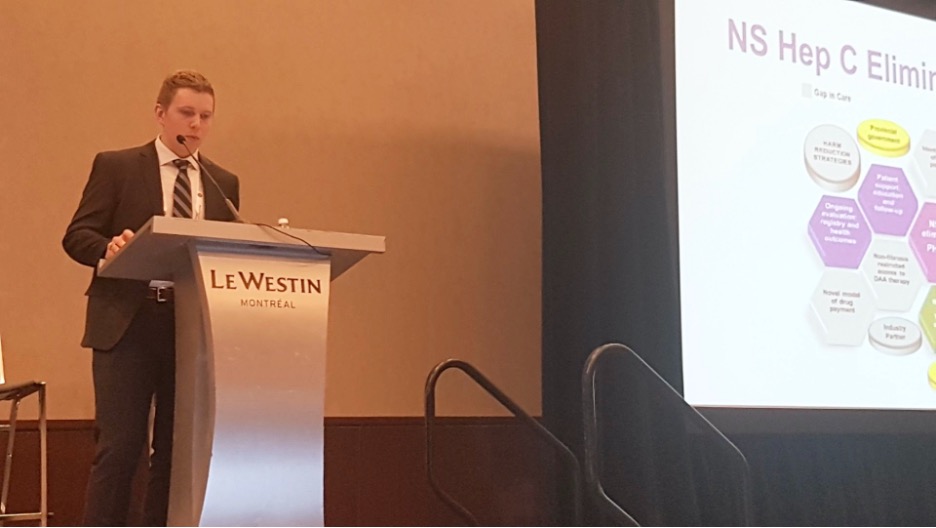
Student Researcher: Forrest Gallagher
School: Dalhousie UniversityWhat is your research about?
Dr. Barrett’s team is looking at the impact of hepatitis C (Hep C) point of care (POC) testing on Hep C elimination. Our aim is to see if having a POC test works as a tool to engage people in Hep C treatment and care. My project is a branch of the larger project that is specifically looking at Hep C care in Nova Scotia provincial correctional populations.
The major component of my project is a questionnaire that explores how people in correctional settings feel about their risk of contracting Hep C within the correctional setting. It also looks at how people feel about their ability to access ways to minimize their risk of contracting Hep C and their ability to access Hep C treatment within the correctional system. Last, it evaluates how people feel about general healthcare in provincial correctional settings.
In the past few months we have been working to adapt this project to understand the same outcomes in regard to COVID-19 risk, prevention, and treatment in correctional facilities.
Why did you choose this project?
I chose this project because I feel the correctional population is a particularly marginalized group in general and especially when it comes to their healthcare.
People within the correctional system represent a different demographic than those found in the general population. There are differences in race, ethnicity, age, and disease risk in correctional populations. Additionally, due to a multitude of factors, there are higher rates of certain diseases such as Hep C within the correctional population.
Overall, what this means is that people within a correctional population have unique healthcare needs and I believe as healthcare professionals we have to be responsive to those needs and ensure that people (regardless of where they live) have proper access to healthcare.
There is also an advocacy role for healthcare professionals to improve the care for people who are marginalized. I see this as an opportunity to help those within the correctional setting.
What are the implications of your research for clinical practice?
My goal is that this research impacts the way healthcare professionals think about the care people in correctional settings receive. I hope that the system as a whole is more responsive to the needs of people in this group; not just from the Hep C risk/treatment prospective, however; from a general healthcare prospective.
I also hope that this project helps raise awareness about Hep C and improves the way we are able to engage people in care. Hep C is a curable disease if people have access to proper testing and treatment. It is important for health professionals to realize this and help people overcome/breakdown the barriers to accessing care. My goal would be that the implication of this work was the improvement of this in even the smallest degree.
What activities do you do outside of research and medicine?
Outside of research and medicine, I enjoy playing sports such as hockey and baseball. During my undergrad, I was actively involved in coaching minor hockey and working with minor baseball. I hope to get back to this after my education is complete.
Currently, I enjoy reading and getting back to my hometown of Springhill, NS to visit family and friends.
How do you see research playing a role in your future career?
I hope to work as an emergency room physician in the future. The ER is a place that I would argue sees the highest number of people who are marginalized in one way or another. Certain people have a tendency of not getting the healthcare they deserve whether it is due to stigma, social circumstances, or a system that is not flexible enough to meet the needs of people who are different in one way or another.
A person’s emergency room experience can be the reason they continue to access healthcare or choose not to in the future, which overall affects their health outcomes. The ER is a place where people can be connected with the care they need whether it be disease testing/treatment (such as Hep C), housing, addiction services, social services, spiritual support, etc.
My goal is to help people achieve the best health outcomes they can by working with them to identify their unique needs and connect them with the services they require. This project and the opportunity to learn from Dr. Lisa Barrett and her team has taught me to approach medicine differently and I hope to use that approach to help my future patients.
-
Endoscopic Resection & Adjuvant Therapy vs. Esophagectomy for Early Stage Esophageal Cancer: A Comparison of Patient Outcomes
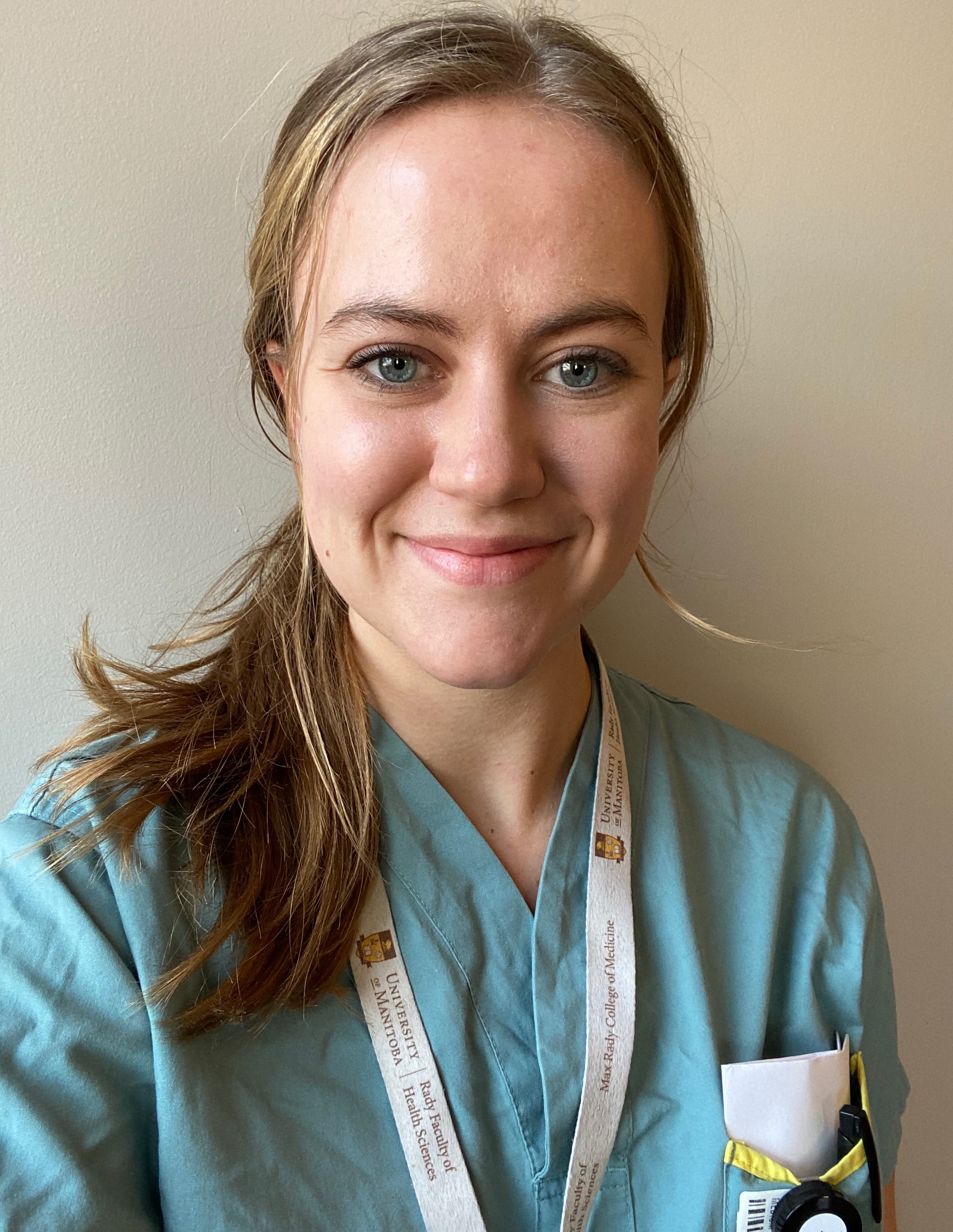
Student Researcher: Madeline Robinson
School: University of ManitobaWhat is your research about?
- The current standard of care for esophageal cancer is esophagectomy, a procedure carrying high risk of morbidity and mortality that significantly impairs patient health-related quality of life.
- The minimally invasive and organ-preserving techniques of endoscopic resection has been approved for T1aN0 esophageal cancer, but is not currently accepted in T1bN0 or T2 cancers.
- I hope to assess the safety and feasibility of treating T1bN0 and T2 esophageal cancers with organ-preserving endoscopic resection and adjuvant chemoradiotherapy in patients who cannot tolerate or do not wish to have an esophagectomy
- The project consists of a systematic review of existing literature and a single-center cohort study, the results of which are being used to establish a run-in feasibility Phase 2 clinical trialWhy did you choose this project?
My research background prior to medical school was largely in basic science; I chose this project because I was interested in learning more about clinical research. I was particularly interested in minimally invasive surgery, the progress of which has drastically improved surgical outcomes for many patients, and offers an exciting area of research that is still growing.
What are the implications of your research for clinical practice?
This research will inform future clinical trials for non-invasive endoscopic resection procedures vs. more invasive esophagectomy in the treatment of early stage T1bN0/T2N0) esophageal cancer; it will hopefully offer a safe quality- of-life and organ-preserving alternative to patients with early stage esophageal cancer.
What activities do you do outside of research and medicine?
When I have free time, I really love being outside; I am an avid rower (though I’ve retired from competing) and enjoy walking my dog Izzy during study breaks.
How do you see research playing a role in your future career?
I hope to pursue a master’s of science during or after my residency, and aspire to continue incorporating research into my future career and clinical practice.
-
Postoperative Delirium and Subsyndromal Delirium in Older Adults Undergoing Elective Thoracic Surgery: A Prospective Cohort Study

Student Researcher: Kaleigh Ducas-Mowchun
School: University of ManitobaWhat is your research about?
- Delirium is one of the most common post-operative complications in older surgical patients and is associated with poor clinical outcomes.
- Subsyndromal delirium (SSD- features of delirium that never progress to meet delirium criteria) has also been shown to be associated with poor clinical outcomes, including cognitive and functional decline, increased length of stay and increased rate of institutionalization.
- The primary objective of this study is to clarify the incidence of delirium and subsyndromal delirium in this patient population using prospective data accounting for both surgical and age-related factors.
- Secondary objectives are to explore the predictors of delirium and subsyndromal delirium in this population and their relation to long term outcomes including cognitive and functional decline.Why did you choose this project?
Throughout my studies in medical school and from volunteer experience beforehand, I have been increasingly interested in the complexity inherent to the field of geriatrics and physiological changes associated with aging. Thoracic surgery is also unique in its physiological demands both intraoperatively (e.g. duration of hypoxia endured, stress of surgical approach) and postoperatively (postoperative pain, loss of respiratory units, etc.), adding yet another layer of physiological complexity to this patient population. Carrying out research in the context of a complex patient population is a fun challenge, and it’s very motivating working towards improving care for a population with such complex needs.What are the implications of your research for clinical practice?
We are hopeful that completion of this study will provide important baseline information on postoperative delirium and subsyndromal delirium in this patient population in order to guide larger prospective studies, improve risk assessment for patients undergoing elective surgery and allow for evaluation of prevention strategies.What activities do you do outside of research and medicine?
Outside of medicine and research, I like to hang out with my friends, family and dogs, spend time outdoors, practice yoga, dance and travel!How do you see research playing a role in your future career?
I can definitely see myself incorporating clinical research into my future career as a physician. I’m excited to see be able to use my experience from the bedside to guide future research questions and be able to translate it back to improve patient care.
-
Investigating LAG-3-associated dysfunction of iNKT cells in HIV infection
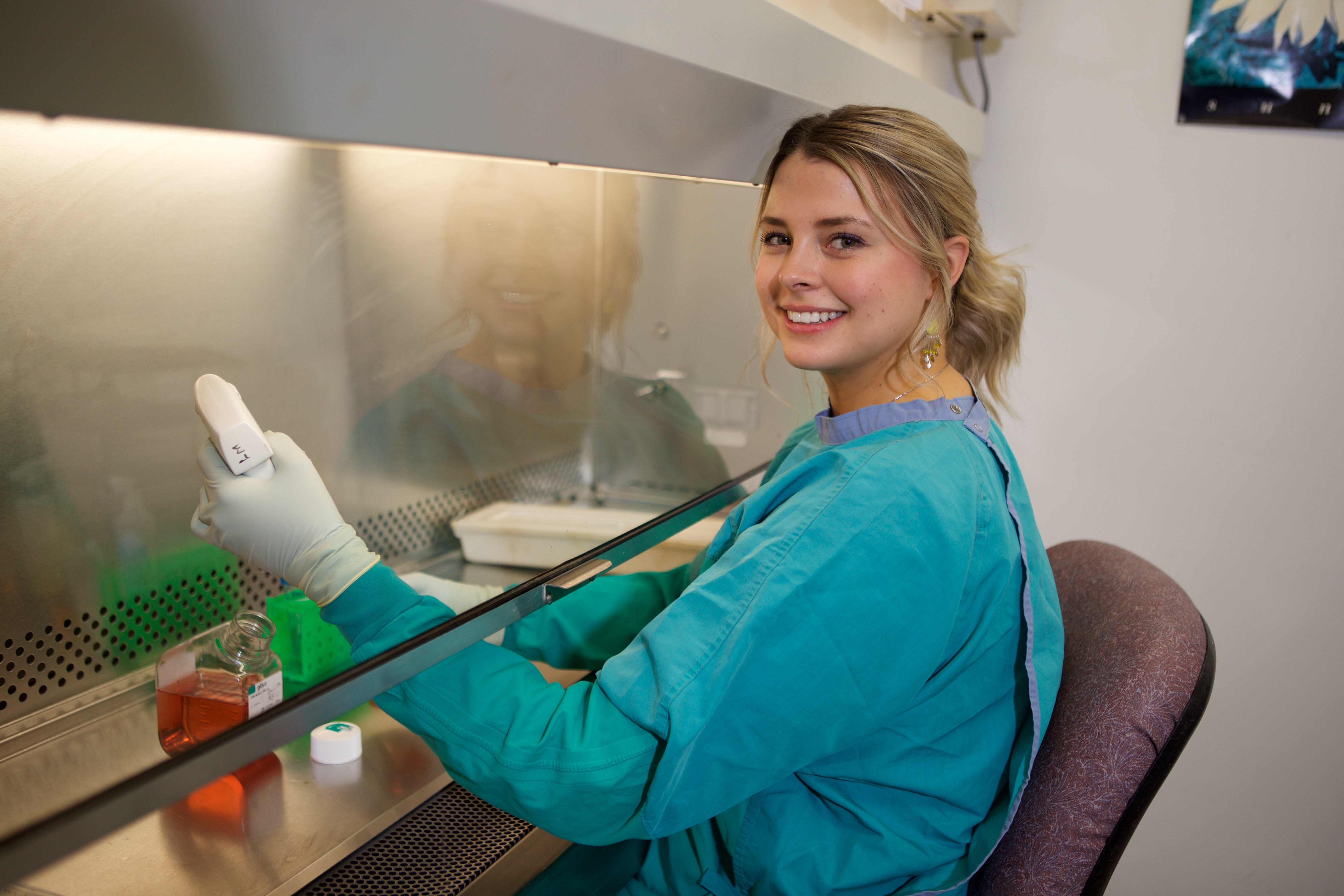
Student Researcher: Alli Balasko
School: University of ManitobaWhat is your research about?
- I work in Dr. Keith Fowke's Viral Immunology lab focused on HIV treatment
- My project is focused on chronic HIV infection, because even though there are great HIV treatments available, they are not a cure, and HIV can still cause multiple clinical symptoms, including "exhausting" your immune system and causing immune dysfunction
- We're looking at developing some therapeutic options to address this immune exhaustion, so people living with HIV can better fight off infections that they might encounter during their lifetime and live longer.
- Specifically, I am investigating immune exhaustion in the context of chronic HIV infection, and how to reverse this exhaustion and dysfunction using antibody therapeutic blockades binding specific immune targets, known as "exhaustion" or "checkpoint" markers, such as LAG-3 and PD-1.Why did you choose this project?
The reason why I wanted to focus on HIV research is just the sheer abundance and the damage that the HIV epidemic has had on everyone around the world for the past 40 years.
Worldwide, there are currently almost 40 million people living with HIV and even though there are some treatments available there’s still a lot of clinical symptoms and negative impacts of having HIV.
There are also tons of ways my project will impact other fields and not just HIV. You can relate it to a lot of different fields like cancer immunotherapy for example. My project has a broader scope than just HIV. In general, the potential of immune therapeutics can impact millions of lives and has been a hot topic in the cancer field.
What are the implications of your research for clinical practice?
I find there are the silos of research and clinical work, but to be able to bridge those two together so when you meet with a patient you see the direct effects. It helps you move your research forward and gives you that drive to want to help that person.
That really helps to shape your research into what people need in the clinic right in that moment. It’s invaluable to have those connections between clinical work and research.
As I am a basic scientist, I am focused on bench work to show proof-of-concept of reversing immune exhaustion in chronic HIV infection using anti-LAG-3 and anti-PD-1 therapeutic antibodies, by working with cryopreserved blood samples of HIV-positive donors. I hope this work will result in compelling evidence, and eventually lead to a clinical trial.
What activities do you do outside of research and medicine?
I love the outdoors – hiking, biking and hanging out at Falcon Lake are some of my favorite memories.
I also love to travel – I was recently on a safari in South Africa, and I would go back in a second!
How do you see research playing a role in your future career?
Infectious Diseases is an extremely interesting field that is quickly and continuously changing, where we have to adapt and fight off new and evolving pathogens. I love the challenge that poses. Further, being in both the MD and PhD streams, you truly realize how dependent medicine and research are on each other. Aside from carrying out my own research in the future, I also aspire to play a critical role in this knowledge translation and communication between research and medicine, and potentially taking on a public health role as well.
-
Analysis of Enterovirus Evolution in Canada Over a 23-Year Period
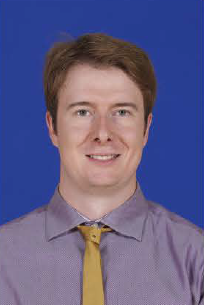
Student Researcher: Andrew McDermid
School: University of ManitobaWhat is your research about?
- My research career started in characterizing Rotavirus samples in Canada in the wake of Rotavirus vaccine licensure.
- The project also included evaluating the genetic variation of Rotavirus strains over time with some focus on antigenic regions.
- My next project applied concepts and skills drawn from the genetics component of my Rotavirus project to analyze more than 20 years of Enterovirus clinical isolates from across Canada.
- Genetic variation of the strains from common serotypes were compared with incidence rates of those serotypes to assess the effects of genetic shift on incidence.Why did you choose this project?
In a way I chose this field of research because I have a keen curiosity in infectious diseases and virology. This role also provided me with an opportunity to do research in the National Microbiology Laboratory.What are the implications of your research for clinical practice?
Both of my research projects contribute to the understanding of viral evolution, both are valuable for the present understanding of viral circulation in Canada, and I hope for both to contribute to the future use or implementation of vaccines in the future.What activities do you do outside of research and medicine?
Outside of school I spend much of my time with my partner and 2-year-old son, cook, and try to get out for a game of golf on occasion.How do you see research playing a role in your future career?
I plan to incorporate research into my future career.
-
Optimizing the Pedagogical Benefits of Testing in University for Improved Academic Outcomes
Student Researcher: Vivian Tsang
Describe your research in up to five bullet points.
- Assessment driven learning has recently been revived as an important topic within education
-One might expect the effects of rehearsal to generalize to conceptually related, but distinct information
-This testing effect is transferable to related material that was not directly studied or studied but not tested (transfer)
-In a pilot study simulated to emulate real classroom scenarios, it was demonstrated that testing supports transfer of learning to new material but that the results varied depending on the organ system tested
-Secondary studies are currently being done to further understand this phenomenon
-Results of the studies will contribute to curriculum development through restructuring of lecture order and contentIn-Brief Explanation
The notion that assessment can drive learning has recently been revived as an important topic within education. The very act of sitting a test can increase the memorability of the information being tested relative to repeated study of that information. What is not known is the mechanism through which testing creates this benefit and the extent to which the benefits gained generalize to other related material. This research tested the extent to which test enhanced learning benefits transfer to concepts that are related but not formally tested.
Results demonstrated that testing supports transfer of learning to new material but that the results varied depending on the organ system tested. Further analysis is currently being conducted to better understand our preliminary results. Conclusions of these studies will translate to improved restructuring of courses and ultimately towards academic success for medical students.
-
Canadian Neurosurgery Educators' Views on Stereotactic Radiosurgery in Residency Training
Student Researcher: Justine Philteos
Describe your research in up to five bullet points.
-There is an increasing need and use of Stereotactic Radiosurgery (SRS) in treating intracranial and spinal pathologies.
-Despite this, there is limited exposure to this modality in neurosurgical residency. For the field of neurosurgery to sustain its involvement in the provision of SRS planning and delivery, adequate training of neurosurgery residents in SRS is needed.
-This study was aimed to assess neurosurgery educators’ views regarding the current state of Stereotactic Radiosurgery exposure, and to identify potential approaches to improve residency education in this domain.
- Of the 34 eligible participants, the overall response rate was 41.1% (14/34). This represents 9 of the 12 Canadian institutions surveyed - the majority of participants being current program directors. Most respondents (9/12) view an increasing role for SRS training in neurosurgery residency.
-This analysis is timely as residency training is at a crossroads with the development of competency-based medical education.In-Brief Explanation
Stereotactic radiosurgery (SRS) is an integral component of neurosurgical practice. The indications for SRS as a minimally invasive tool in the treatment for neurosurgical pathologies continue to expand. Previous reports have emphasized that loss of neurosurgery leadership in SRS could jeopardize the field and compromise patient care. This study employed qualitative thematic analysis and constructivist grounded theory methodology in semi-structured phone interviews with current residency directors, past residency directors and departmental chairs across neurosurgical departments in Canada to assess their views regarding the current state of SRS training and exposure in residency. Unanimously, respondents endorse greater exposure to SRS during residency through formal residency rotations and engagement in interdisciplinary tumor boards to facilitate involvement in clinical decision-making. This analysis is timely as residency training is at a crossroads with the development of competency-based medical education.
-
Implementing Peer-Led Teaching in Medicine: an Impactful Stress-Reduction and Learning Strategy
Student Researcher: Tia Karass-Rohan
Describe your research in up to five bullet points.
-Ambassadors for Comprehensive Education(A.C.E.) Program: student-led leadership initiative at McGill
-Aims to improve medical student education via peer-teaching activities and educational resources
-Our study demonstrates significant stress reduction and improved academic preparation
-Improving medical education through peer-teaching is beneficial to both students and tutors
-Thus, we encourage the presence of peer-led teaching as a learning method in the medical curriculum From: Brault C, Souza G, Doucet A, Karass-Rohan T, Long J, Hennegan K, Heron J. Poster presented at: 2018 Canadian Conference on Medical Education (CCME). 2018 Apr 28-May 1; Halifax, NS.In-Brief Explanation
The Ambassadors for Comprehensive Education (A.C.E.) Program is a student-led leadership initiative at McGill University. It is a committee aimed at improving education for medical students at all levels through peer-teaching activities and educational resources. Students relay their knowledge to their peers, while reinforcing their own understanding, promoting active rather than didactic learning. Our survey results reveal that our program is beneficial for academic preparation, stress reduction and bolstering students’ interest in peer-teaching activities. In light of the results this innovative strategy has yielded, we promote the presence of peer-led teaching as a learning method in the medical curriculum.
-
Is there enough about ME in Canadian Medical School Curriculums?
Student Researcher: Perneet Sekhon
Describe your research in up to five bullet points.
-ME is a problem with the nervous system involving inflammation or a neuroinflammatory disorder.
-In conducting a survey of 811 general practitioners, 48% were not confident in making a diagnosis of ME and 41% did not feel confident in providing treatment
-In a 2013 study by Peterson et al., it was found that there were significant gaps in ME coverage within medical schools in the US.
-Leonard et al. reviewed 119 medical textbooks and found that only 0.09% of the pages had ME content.
-This article highlights the current gap in medical school curriculum content concerning Myalgic Encephalomyelitis (ME).In-Brief Explanation
This article will highlight the current gap in medical school curriculum content concerning Myalgic Encephalomyelitis (ME) and why it’s a major issue. There is a need for advancing research about ME pathophysiology and treatment. This need must go hand in hand with educating students and healthcare professionals about ME.

